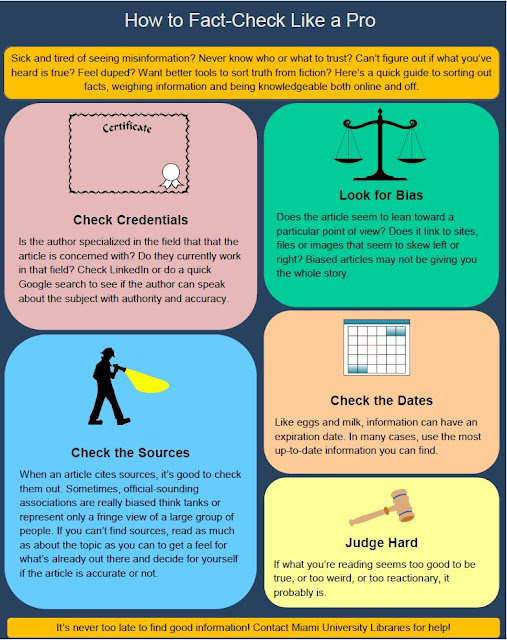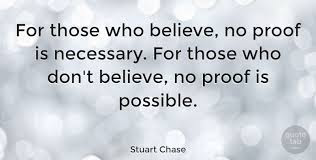Yesterday I dropped Freia to her New York apartment. 3 months after she was supposed to move. The COVID-19 stay-at-home that forced us to be indoors, had a silver lining. I got to spend 3 months of quality time with Freia. And learnt more about her than I had in the preceding 25 years. I had a great time enjoying the amazing food she made, the enjoyable choice of shows and movies she projected and the casual yet meaningful conversations we had.
And this blog is for her. And by her. Not 1. Not 2. But 3. Enjoy ! You can always follow her on tumlr
freia in quarantine
American History Recommendations from Twitter- A People’s History of the United States
- Independence Lost
- A People’s history of the American Empire (graphic novel)
- March Trilogy (graphic novel)
- Democracy in America
- Cane River
- Lies my teacher told me
- The warmth of other suns
- Black Against Empire
- Stamped from the Beginning
- The History of White People
- Birthright Citizens: A History of Race and Rights in Antebellum America
- Racial Politics in American Cities
- And the Band Played On
- 1491
- Age of Fracture
- Medical Apartheid
- Indigenous Peoples History of the United States
- Black Women’s History of the United States
- These Truths
- Killers of the flower moon
- We Were Eight Years in Power
a tale of four citiesi grew up in mumbai, the largest city in india. i loved living in a city and always missed it when we went to visit family in smaller towns.
one of the earliest memories i have, or maybe it’s a reconstructed memory from my parents telling me the story, is that when i was 3 or 4 years old we went to visit family in a smaller town and i complained to my mom that i could not sleep because it was “too quiet.” the darkness terrified me as a kid used to cars and lights.
i was lucky to have traveled quite a bit as a kid, and my favorite parts of these trips were always cities. i never cared much for nature, but i loved being able to try street food or go to dense shopping areas.
we visited san francisco and los angeles when i was 8, because i had family in both cities at the time. i am told i didnt like san francisco (too cold, water tasted weird) and i loved los angeles (disneyland). i visited new york twice, when i was 14 and again when i was 15. i fell in love. the city felt familiar to me, like mumbai in many ways, but more organized. i remember distinctly when my uncle took us to mamoun’s falefel, near nyu. i remember thinking - wow people go to college here? how lucky. i hadn’t yet realized that it had little to do with luck and everything to do with money and privilege.
and then, i was the “lucky” one. i moved to the us, specifically new york when i was 18, to go to college at nyu. from the very first day i felt immediately at home. the subway felt navigable enough, and i was finally able to do whatever i wanted. that first year felt like magic, and i remember every part of it. taking ridiculously long walks late at night just because, refusing to do anything touristy because i now lived in new york, feeling deeply homesick and going to jackson heights for a taste of home.
i studied computer science, and was lucky again to go out west every summer for an internship in the bay area. the summers were fun and packed with activity, and i loved being in san francisco where everyone, like me, loved tech. i missed my friends in new york, but i always knew that i was going home in a few months.
then in senior year, i had a decision to make. i had an opportunity in san francisco that i knew i couldn’t refuse, but i just didn’t want to leave new york. but i decided to prioritize opportunity over location, so i signed on to move. the last few months in new york were brutal. not because they were bad, but because they were great. i had the best streak of subway luck i had ever had in my 4 years, the summer was amazing and ending too quickly. my last day in the city was very emotional - i was leaving behind people i loved and a city i just didn’t want to leave. i threw myself a goodbye party, promising everyone that i would be back.
and then i moved to san francisco. i spent two years in sf, and for the most part i enjoyed them. i met a ton of people, the job was the right choice, and i had a lot of great experiences. but in parallel, i kept visiting new york, every 3 or 4 months for work or fun. and every time i landed at the airport, i knew i still wanted to move back. this was no secret, and though i hope i wasn’t obnoxious about it, i remember distinctly once in a meeting where after i had been in new york for memorial day, a colleague said in a very aggressive tone “how was your weekend in new york? i don’t understand why people move to california if they hate it so much. why not go back to where you came from?” maybe i was more obnoxious than i realized.
last year, i had an opportunity to join a startup in la, a city i had only been to once before for a weekend. i liked it that one time, but i didn’t know anything about it. i also had a few opportunities to move back to new york, but they did’t seem like the right opportunities, so i moved to la. opportunity over location.
in many ways i loved living in la. i lived right by the beach, and i got more sun than i ever have. but i was also deeply lonely. a month into living in la, i had a work trip to new york. when i flew back to la, i felt the worst whiplash and had a major depressive reaction. i knew what i wanted, but it seemed insane to quit a job i enjoyed a month in, because of a fun weekend in new york.
i knew nobody there but my coworkers, i also happened to be traveling a lot and spent very little time actually in la outside of work, and had a lot of friends visit me. all of this helped me distract from how lonely i felt, but when it became clear that things with the job weren’t going to work out, my impulse was to leave the city as well.
i spent some time thinking about where i wanted to go when i left. i could go back to san francisco, where i still think most of the best jobs for me are. but i decided that i would not prioritize opportunity this time, but prioritize my friends and family.
so i flew back, two and a half years after my overly dramatic departure, and made it back. i stayed with my dad in connecticut and found myself an apartment and got the keys, and in my classic dramatic fashion i almost cried. this all happened right before lockdown, so i’ve had to push my physical move a little further, but i am even more excited to be back.
my dad tells me that i’ve talked about wanting to live in new york from a very young age. i attribute this to having read the devil wears prada far too early on. but i still feel that same silly excitement about the city, and while i can’t quite articulate why, it’s the place that feels the most like home.
what do you do?recently, i was asked to write my job title and professional bio for something for the first time since i didn’t have an obvious one. as much as any young ‘ambitious’ person in tech, i have tied my identity to my job for basically as long as i can remember working. i never felt bad about that, and still don’t, but i’m starting to think differently about it.
my twitter bio says “just vibing,” and a few weeks or months (who knows really) a friend messaged me saying “hey so are you working anywhere or are you actually just vibing?” i laughed very hard and saved a screenshot to my favorites folder.
since leaving my job and moving cross country back to new york in early feb, i hadn’t really “announced” (lmao) “my next move” to the internet, which was obviously intentional for someone who spends as much time performing online as i do. the reason for the lack of announcement was because there was nothing to announce, i had no plan or idea of what i would be doing next, and the last thing i wanted was to deal with the questions of overly familiar internet strangers.
when i worked at twitter, it was my entire life. my workdays, my weekends, my whole personality and identity. it was all consuming and i wouldn’t have done it any other way. it left me with many deep relationships that i continue to cherish, and also with a lot of messy feelings i’m still working through. when i left for a startup, it was similar, where i suddenly felt entirely immersed in the company’s world. i loved and am grateful for both those roles. but in both cases towards what turned out to be the end of the role, i started feeling a nagging restlessness, that told me it was time to move on.
i spent some time earlier this year job hunting, and as embarrassing as it is to admit, one of the factors i weighed was “how would i feel saying that i work at XYZ company.” i used it as a proxy for how i felt about the company, but i would be lying to myself if i said i don’t also earnestly care what people think.
eventually, i decided that i didn’t want to work at any of those companies, because they just didn’t feel right. it’s been interesting to somewhat unintentionally fall into a position of not having a concrete title and job that defines my identity, and navigate that after living a life where my linkedin was my whole personality.
the short answer to the question of what i’m doing is that i’m contracting full time with an awesome company, and trying out one off freelance things. the longer answer is that i’m trying to figure out how to build a life where i can have a setup that pays me well and helps me save money and build personal financial runway, while i also spend the remainder of the year thinking about what it would look like to work on my own company and what kind of company that might be, or if i want to join another company and what kind of company that might be.
i feel very lucky to be able to try something like this at such a precarious time. i can take the financial “risk,” am not on a visa, i don’t have debt or dependents. there are downsides compared to a stable job of course - the money itself, benefits and stability to name 3 hugely important things. but frankly, as cliche as it sounds, i’ve never been more happy or fulfilled in my work, and i finally feel after much restlessness that i am working towards the kind of career that feels right to me right now.




























